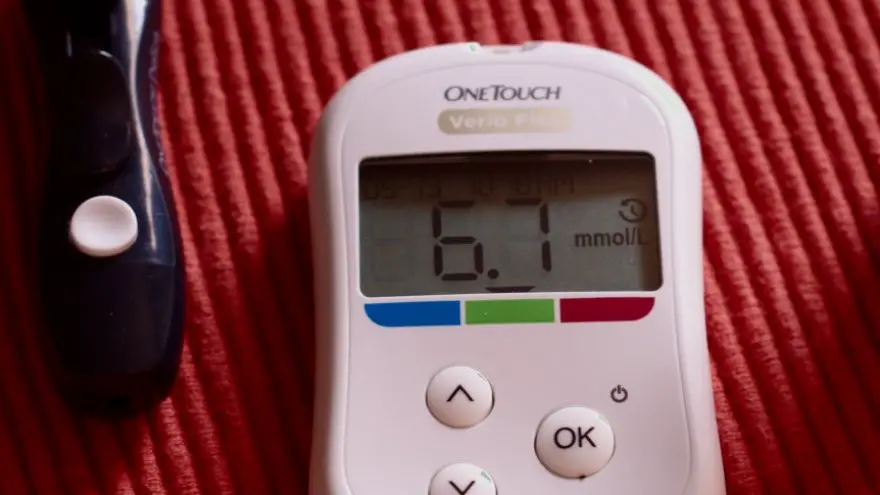Children with Diabetes: The Process They go Through

Diabetes can affect the emotional aspect and well being of your child. Frustration and negativity can affect the blood glucose levels so it’s good to find support groups for you and your child to learn how to cope with a wide range of emotions that are associated with diabetes. When you find out your child has diabetes this can be upsetting. You are going to feel very sad and this includes a wide range of heartbreaking emotions because you know your life is going to change drastically. This is quite normal.
Remember there is always a rainbow at the end of the tunnel.
Denial
You find out your child has diabetes and then you go through a period of denial because you are still in shock. You think maybe the doctor made a mistake or you want a second opinion. This is normal as well because you are feeling overwhelmed. The best thing you can do is talk to your child and try to make their life a bit easier because your whole family is going through changes. Ask your friends, family and the doctor for help and support. You will both adjust and kids are stronger than adults. You will be able to learn to do glucose tests in a timely manner, make sure your child takes their medications, be on time for doctor appointments and watch your child’s diet and make sure they exercise. This is something the whole family can do. In time, you will become more comfortable with the word diabetes. It’s a good idea to keep a plan for the day. Remember when your child needs their medications, tests on their blood sugar level, exercise and planning their diet. You can also check with your child’s doctor and show him or her your plan to see if you are doing everything correctly.
Anger
You might start to experience a little anger because you are thinking that your child isn’t normal and wondering if people are going to start treating your child differently. There are many chronic childhood diseases in the world where children need medication in school. Diabetes is also very common. It’s just important that you are on top of it. Anger doesn’t have to make you mad and if you feel angry, turn that anger around into a positive for you and your child. You can put more energy into planning healthy meals for your whole family. You can also start to run it out or bike with your child. Exercise is the key to alleviating many childhood and adult illnesses. Exercise helps your child and anyone for that matter. Exercise is a good way to build healthy immune systems so people with chronic illnesses don’t become as sick as easily. Just remember don’t be too upset around the holiday season. There are going to be quite a few treats with quite a bit of sugar and you and your child are going to have to be careful. You can always speak to your relatives and make a plan for treats for your child that doesn’t have sugar. Too much sugar just causes children to crash anyway. Look at this as a positive way to celebrate the holidays with your child. You won’t have to deal with the sugar crash aspect of the holiday season. There are many good and healthy foods that your child can still eat and there might be another person at your gathering that has to check their sugar levels as well.
Sadness
It’s very normal to feel some sadness every so often. You are going to suffer your down days because you are worried about your child. Your spouse is also going to suffer some sadness too. This might be a good time to sit down with your significant other and start talking about your feelings in regards to your child. Don’t become angry at each other, it’s no one’s fault. This is a very common disease and with great care and good habits, you can teach your child how to carry on their good habits into their adult life.
Depression
Sometimes parents will become depressed and feel a bit burnt out so if you think you are depressed, you should start to tackle it. Make sure your child is not suffering from depression from the disease as well because your child could have diabetic complications from this disease. If you feel depression is an issue with you and your child, consult your doctor and ask if he or she can recommend a good therapist. There are certain therapists that are trained for diabetes depression and this includes cognitive behavioral work with diabetic patients. This therapy helps the child and parents start to think about working through dangerous thoughts and triggers, which could cause more depression. Your therapist is going to ask you to think about changing your lifestyle with plans like exercising and making time for yourself. Many people can cure their own depression and children that have type 2 diabetes, that overcomes depression have taken more control over their sugar levels. Anti-depression medication can help adults and children with diabetes control and conquer their depression. The power of positive thinking does wonder for the human body. Stress actually shuts down the digestive system and this can be dangerous for children and adults with diabetes. One thing parents must avoid is a diabetic coma because this actually does cause death in diabetic patients. This is why it’s very important to make sure the mind is working at full capacity and keep the door open so your child may talk to you about anything they are feeling.
 Diabetic eating disorders
Diabetic eating disorders
Parents are constantly thinking about food for their child with diabetes. In addition, parents are also concerned about the numbers of the sugar levels of their child. When your child reaches adolescence he or she are going to begin experiencing the fluctuation of hormones which is depressing enough. When you add a childhood disease with this, your child could start to go back to bad habits of negative thinking. People have heard of bulimia, but in the case of diabetes, there is a food disorder called diabulimia. This disorder is another way of your child having weight and body image issues. Suddenly, you find your child is sneaking food that he or she shouldn’t have and are not in control of their diabetes. If something like this happens and you think your child is struggling with diabulimia, call their doctor for some advice and ask what treatment options are available.
Remember emotions are normal when it comes to anyone having diabetes
Parents all understand that emotions are part of all of our lives and now diabetes is added to the equation in many people’s lives. Think about teaching your child to talk about their emotions as they roll to the surface. This way you and your family have a better chance of controlling the management of your child’s type 1 or type 2 diabetes.







